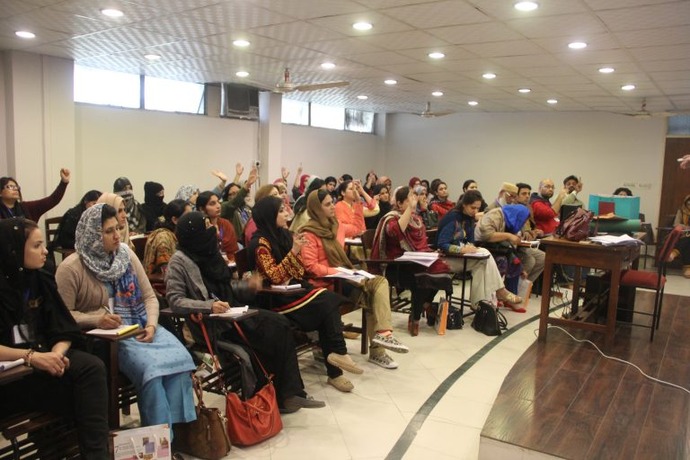
Teacher Training and Development in Pakistani Schools
Introduction
Teacher training and development play a pivotal role in shaping the quality of education in any country. In Pakistan, where education faces numerous challenges, investing in the professional growth of educators is of significant importance. This article delves into the state of teacher training and development in Pakistani schools, highlighting the current landscape, challenges, and the way forward to ensure a brighter future for the nation’s students.
The Current Landscape
Teacher training and development programs in Pakistan have made significant strides in recent years. Various government and non-government organizations are actively involved in the training and capacity building of teachers, equipping them with the necessary skills and knowledge to create effective learning environments. In particular, initiatives such as the National Professional Standards for Teachers (NPST) have set clear benchmarks for teacher quality and development.
Challenges
While progress has been made, Pakistani schools face several challenges in the area of teacher training and development:
- Lack of Standardization: The absence of uniformity in training and development programs leads to inconsistency in the quality of educators. There is a need for standardized guidelines to ensure that teachers receive a consistent level of training.
- Accessibility: Access to quality training opportunities remains an issue, especially in rural areas. Many teachers in remote regions lack access to professional development resources, limiting their growth potential.
- Pedagogical Approaches: Traditional teaching methods often prevail, focusing on rote memorization rather than critical thinking and problem-solving skills. Teachers need training that encourages innovative and student-centered pedagogical approaches.
- Teacher Motivation: Low salaries and limited career advancement opportunities can demotivate teachers. Adequate incentives are essential to encourage educators to invest in their professional growth.
- Resource Constraints: Many schools lack the necessary resources for effective teacher training, including materials, technology, and infrastructure.
The Way Forward
To overcome these challenges and foster a culture of continuous improvement in Pakistani schools, several key steps can be taken:
- Standardization: Develop a national framework for teacher training and development that outlines the required skills, competencies, and ongoing professional development expectations.
- Accessibility: Establish training centers and online platforms that provide access to teachers in remote areas, making it easier for them to access relevant resources and training.
- Pedagogical Innovation: Encourage innovative teaching methods that focus on critical thinking, problem-solving, and creativity. This requires regular workshops and training sessions.
- Motivation and Incentives: Improve teachers’ working conditions, increase their salaries, and provide opportunities for career advancement. A motivated teacher is more likely to invest in professional development.
- Resource Allocation: Allocate sufficient resources to schools for training and development. This includes funding for training programs, access to technology, and supportive materials.
- Collaboration: Foster collaboration between educational institutions, government bodies, and non-government organizations to create a cohesive approach to teacher training and development.
- Evaluation and Feedback: Implement a system for evaluating the effectiveness of training programs and collecting feedback from teachers. This will help tailor future programs to meet the specific needs of educators.
Conclusion
Teacher training and development in Pakistani schools are crucial for enhancing the quality of education and preparing students for the challenges of the 21st century. While there are challenges to overcome, the country has made significant progress in this area, with various initiatives and programs in place.
By standardizing training, improving accessibility, encouraging pedagogical innovation, and providing incentives, Pakistan can nurture a skilled and motivated teaching workforce. Collaboration between stakeholders is essential to ensure that teacher training and development efforts are aligned with the needs of the education sector. With a collective commitment to these measures, Pakistan can look forward to a brighter future for its students and an educational system that empowers them to thrive in an ever-evolving world.

Content writer, educationist, teacher, researcher, social media manager, and a SEO manager from lahore. She has been working as a freelance academic and non-academic writer for more than 10 years now. She has a passion to learn new things and has a knack for writing and she combines both things to produce write ups she pours her heart out in.

